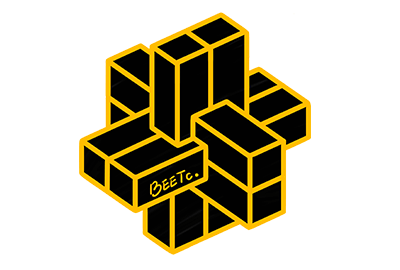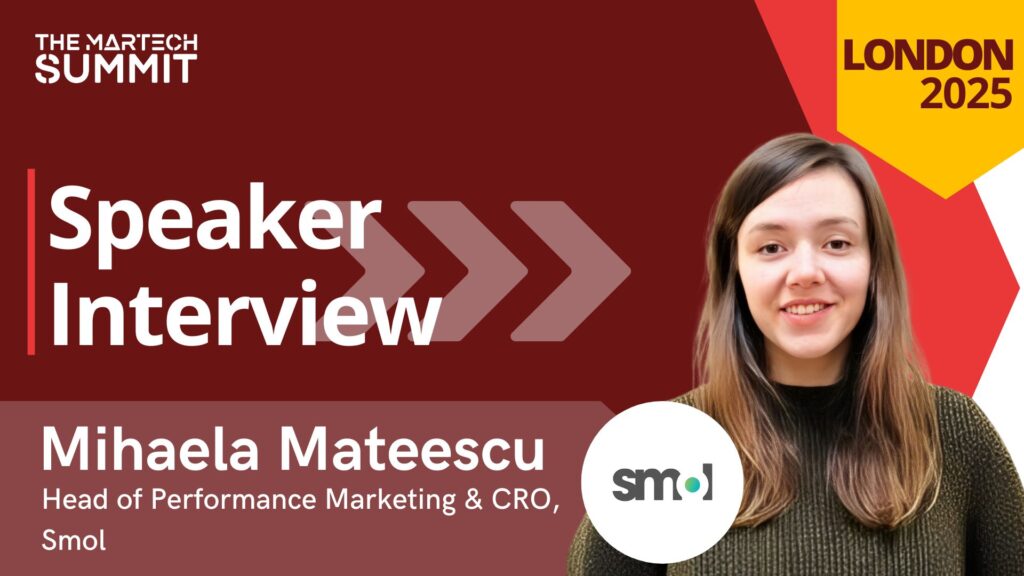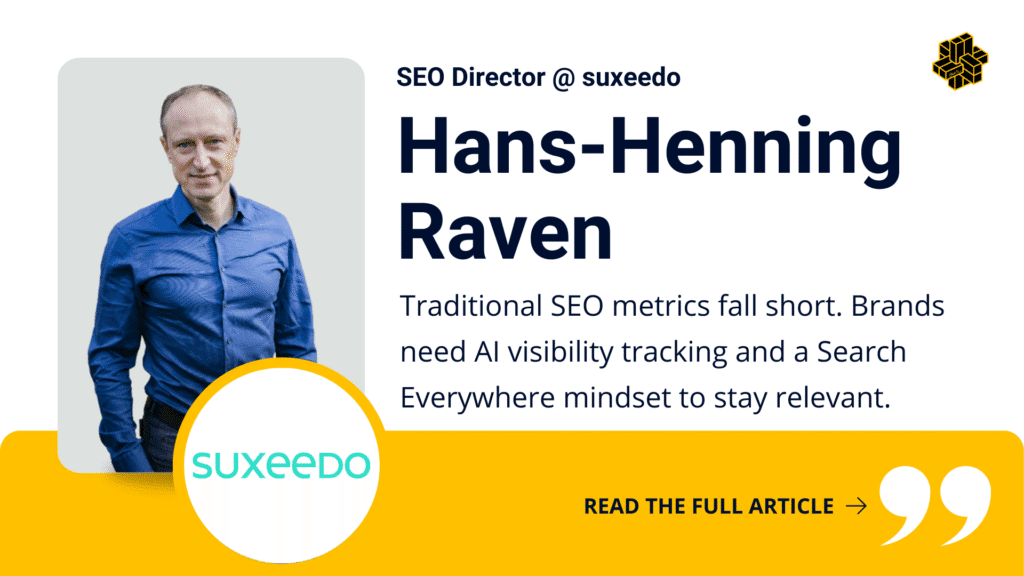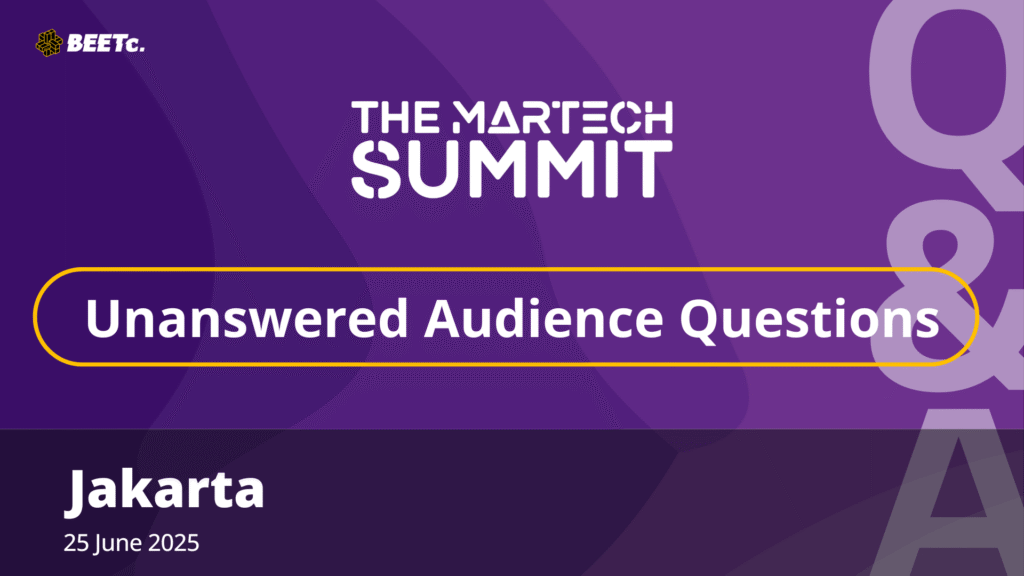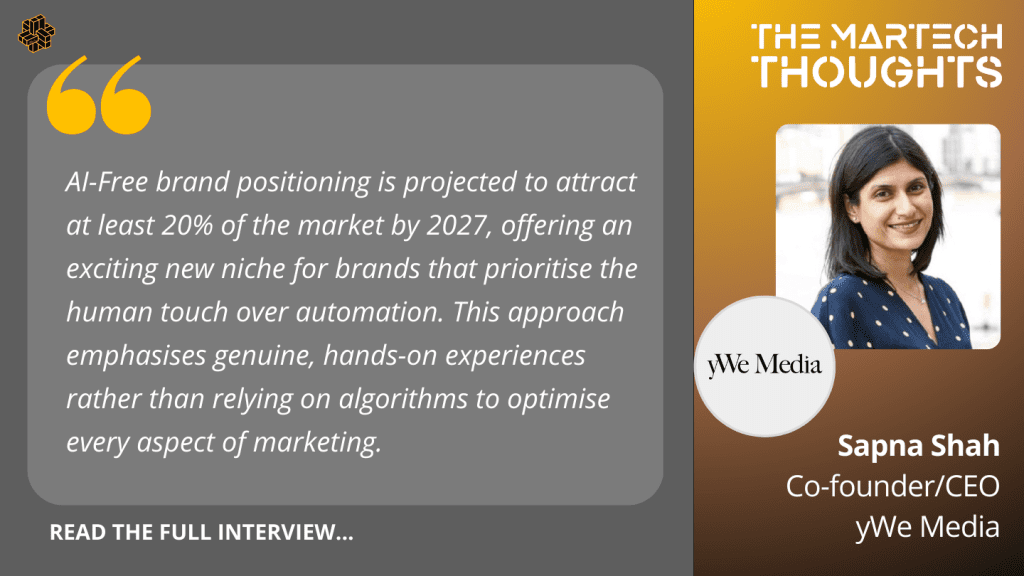
Welcome Sapna Shah, Co-Founder/CEO of yWe Media, sharing her insights on Ethical Marketing, Privacy-led Tools & AI-free Brand Positioning as part of the MarTech Thoughts series.
How do you describe your job to a 5-year-old?
Imagine you and a friend decide to build a treehouse together. You need to come up with cool ideas, gather material and start working. At work, a friend and I have started to create an awesome tool that helps people learn what people like about their website without taking their secret of who they are away. So they can view what they want without being followed. Additionally, we give businesses a microphone to help them talk to many people at once -their own podcast, and they can add their own logo or colours to it.
What is the one marketing platform/app/solution you can’t live without? Why?
Grammarly helps me correct my spelling and grammar and allows me to write newsletters, articles, and posts for my audience’s sweet spot reading age.
Currently, what are you primarily looking for in your digital marketing efforts? Awareness, engagement, conversion, or retention? Why?
We focus on awareness through ethical practices to educate and promote the importance of ethical marketing tools and privacy-led software.
At your organization, what marketing tasks are suitable for automation, and which tasks still need a human touch? Is there any part of the marketing process that includes AI?
We could use a CRM but we will do that creating our own that we can then offer with our products. Customer service and retention still require the human touch as people like people. Currently, we do not plan on using AI.
What are some of the significant changes to your customer outreach and retention strategies? And how has it impacted the growth plan for upcoming years?
We will eventually shift our focus towards building a platform that addresses multiple aspects of our clients’ needs. By offering a more comprehensive solution, we’re not only reaching out to them but also continually re-engaging them with new services. This approach is designed to enhance customer retention and allow us to scale steadily in the coming years, fostering mutual growth.
How do you see the skillsets needed for the marketing profession changing?
Marketing is evolving, and it’s all about being ethical and sustainable now. Consumers are getting smarter about privacy, so shifting away from third-party cookies is inevitable. Instead, we’re seeing more creative and responsible strategies emerge. Take podcasting, for example—listeners are already dialled into the topic, which means ad placements feel more natural and less disruptive. It’s about blending brand presence seamlessly into the content, making it noticeable but not overbearing. This shift requires marketers to level up and get savvy with platforms like Reddit and others to keep up with the changing landscape.
What will be the next evolution in marketing technology that we can expect in the coming years?
AI-Free brand positioning is projected to attract at least 20% of the market by 2027, offering an exciting new niche for brands that prioritise the human touch over automation. This approach emphasises genuine, hands-on experiences rather than relying on algorithms to optimise every aspect of marketing.
Imagine a clothing brand that handcrafts each piece or a coffee shop that brews every cup manually—no AI efficiency, just pure human skill. These brands create experiences that feel authentic, personal, and tangible. The AI-free trend will likely take root in industries where human connection is key, such as artisanal food, boutique fashion, wellness, and even select service sectors. People will pay a premium for products and services that are proudly AI-free because they value the craftsmanship, the story, and the human element behind them.
Marketing tools for these “acoustic” brands will focus on authenticity and connection rather than automation and data-driven optimisation. These tools will prioritise handcrafted designs, meaningful customer interactions, and rich, sensory experiences. The goal is to connect with audiences on a deeper emotional level by emphasising qualitative insights and narrative-driven campaigns.
What specific marketing challenges do you anticipate for brands that choose to avoid AI, and how can companies effectively overcome these challenges?
Brands that avoid AI will likely face challenges in areas such as scalability, data analysis, and personalisation—areas where AI typically excels. However, these brands can overcome these hurdles by doubling down on authentic, meaningful customer connections. This could involve using qualitative research methods, building personalised experiences on a smaller scale, and focusing on relationship-driven marketing rather than mass outreach.
By emphasising their unique value propositions—such as craftsmanship, authenticity, and human interaction—these brands can differentiate themselves in a crowded marketplace. While they might not benefit from the same level of efficiency or scalability as AI-driven brands, they will likely build strong, loyal customer bases that value the deeper connection and the human touch.
Do you see any parallels between the AI-Free movement and other trends, such as organic or sustainable branding?
Absolutely. The AI-Free movement parallels trends like organic food and sustainable fashion, where consumers choose authenticity and ethics over convenience and mass production. Just as people seek out organic products for their quality and sustainability, AI-free brands offer something more personal and real by focusing on human craftsmanship and connection.
It’s not just about rejecting technology—it’s about embracing the imperfections, stories, and human elements that make brands feel alive. Organic brands emphasise quality over quantity, sustainable fashion prioritises thoughtful production over fast fashion, and AI-free brands are pushing back against the automation wave. They’re championing real human connections and craftsmanship.
We’re seeing a shift from purely efficiency-driven products to those that tell a story and foster real emotional engagement. Much like the organic movement started as a niche and then went mainstream, AI-free branding has the potential to become the next big trend in marketing.
What are the key challenges when implementing new technologies or platforms for the first time in your company, and do you have any suggestions for making the process smoother?
Challenges one faces with implementing new technologies or platform is doing it right for the company and getting the best out of the technology. I suggest only using those that offer implementation for your company as a service so that you get the most out of what your sign-up to.
Which MarTech solution/platform will you invest in if you’re an angel investor?
A platform for start-ups that helps you create your product to be MVP-ready without needed marketing expertise.
What’s the best advice someone has ever given you?
Hard work and persistence do pay off. Slow and study does when the race.
Any fun facts about yourself that you want to share?
I love anything that gives me an adrenal kick or money saving hacks. My latest was atv quad biking in the rice fields of Bali. Finding flight deals that save us enough money to go on another holiday as a family waiting for the right deals.
Are there any questions you’d like to ask to other MarTech enthusiasts?
How would you feel about a community for marketing and PR enthusiasts without algorithms?
A big thank you to Sapna Shah, Co-Founder/CEO of yWe Media, sharing her insights on Ethical Marketing, Privacy-led Tools & AI-free Brand Positioning. If you want to connect with Sapna, feel free to reach out via LinkedIn!
See more MarTech Thoughts interview pieces here!
Last updated: September 2024
